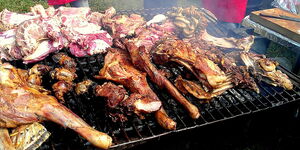The government could soon increase taxes on specific goods by aligning its taxation policies with measures aimed at taming obesity and diet-related diseases.
In the Medium Term Revenue Strategy (MTRS) prepared by the National Treasury, it was highlighted that the government intends to enhance taxation policies on sugar-based non-alcoholic beverages, including soda and juice.
The Treasury clarified that this move aims to discourage the consumption of beverages that have been linked to obesity and other related diseases.
According to the new plan, the government will implement taxes on drinks based on their sugar content. That way, beverages with higher sugar levels will incur higher taxes, resulting in increased prices.
"In order to discourage consumption of sugar-based non-alcoholic beverages and prevent obesity and diet-related non-communicable diseases, the Government will review the tax regime for sugar-sweetened non-alcoholic beverages to base taxation on sugar content," read the document in part.
The government will consider the implementation of the new tax measures over the next three financial years.
The Data
Obesity in Kenya has been attributed to practices in many households which start at an early age of a human being.
For instance, in the Kenya Demographic and Health Survey 2022 report by the Kenya National Bureau of Statistics (KNBS), it was highlighted that parents tend to start giving sweet beverage drinks to children aged between 6 months to two years.
It was projected that 49 per cent of children aged 6–23 months were fed a sweet beverage before the dates when the countrywide survey was conducted.
"Unhealthy infant and young child feeding practices should be avoided because they can promote unhealthy weight gain and replace nutritious foods that provide important nutrients for children.
"For infants and young children, the consumption of sweet foods and beverages increases the risk of dental caries and childhood obesity," read the report in part.
On the other hand, the Global Nutrition Report reveals that over 13.4 per cent of adult females in Kenya are obese. The rate of obesity in men is projected at 3.6 per cent.
Global Practice
Taxation to tame obesity is a common practice across the globe. This practice has also been pushed by health bodies such as the World Health Organisation (WHO).
As an alternative, WHO proposes subsidies for fruits to encourage consumption.
"A number of countries have taken fiscal measures to protect people from unhealthy products. These include Mexico, which has implemented an excise tax on non-alcoholic beverages with added sugar, and Hungary, which has imposed a tax on packaged products with high sugar, salt or caffeine levels.
"Countries, such as the Philippines, South Africa and the United Kingdom of Great Britain and Northern Ireland have also announced intentions to implement taxes on sugary drinks," read the report in part.












